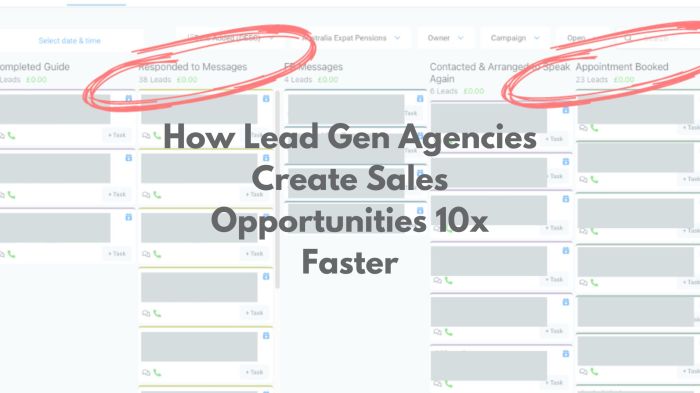Outsourced sales development for software companies – In today’s competitive software landscape, efficient sales development is paramount. Many software companies are discovering the strategic advantages of outsourcing their sales development representatives (SDRs) and business development representatives (BDRs). This comprehensive guide explores the intricacies of outsourced sales development, providing a detailed analysis of its benefits, challenges, and best practices for software companies.

Source: webflow.com
Understanding Outsourced Sales Development for Software
Outsourced sales development involves delegating sales prospecting, lead qualification, and initial engagement activities to a third-party vendor specializing in sales development. This differs from traditional in-house teams, offering a scalable and cost-effective solution for software companies of all sizes. The vendor typically handles tasks such as:
- Lead Generation: Identifying and targeting potential customers through various channels (e.g., LinkedIn, email marketing, cold calling).
- Lead Qualification: Assessing the suitability of leads based on pre-defined criteria (e.g., company size, industry, budget).
- Sales Engagement: Initiating contact with prospects, building rapport, and nurturing leads through various communication methods (e.g., email sequences, phone calls, social media).
- Data Management: Maintaining accurate records of prospect interactions and progress within a CRM system.
- Reporting and Analytics: Providing regular performance reports and key metrics to track progress and ROI.
Benefits of Outsourcing Sales Development for Software Companies
Outsourcing sales development offers numerous advantages for software companies, particularly those experiencing rapid growth or facing resource constraints. Key benefits include:
Cost-Effectiveness
Outsourcing eliminates the overhead costs associated with hiring, training, and managing an in-house sales development team. Vendors handle recruitment, onboarding, and ongoing training, significantly reducing administrative burden and expenses. This allows software companies to allocate resources more strategically towards product development and other core business functions. This is particularly beneficial for startups and smaller companies with limited budgets.
Scalability and Flexibility
Outsourcing provides the flexibility to scale your sales development efforts up or down as needed. You can easily adjust the number of SDRs/BDRs based on market demand and sales targets without the complexities of hiring and firing in-house employees. This agility is crucial for navigating fluctuating market conditions and responding quickly to growth opportunities.
Access to Specialized Expertise
Outsourced sales development vendors typically possess specialized knowledge and experience in sales techniques, lead generation strategies, and technology stacks. This expertise can significantly enhance the effectiveness of your sales process, leading to improved lead conversion rates and revenue generation. They often have access to advanced tools and technologies that may be beyond the reach of smaller companies.
Improved Focus on Core Business
By outsourcing sales development, your internal teams can focus on their core competencies, such as product development, marketing, and customer support. This improved focus can lead to increased innovation and enhanced customer satisfaction. This frees up valuable time and resources for strategic initiatives.
Faster Time to Market
Outsourcing allows you to quickly ramp up your sales efforts without the lengthy recruitment and training process associated with building an in-house team. This accelerated time to market is crucial for gaining a competitive edge and capturing market share.
Challenges of Outsourcing Sales Development
While outsourcing offers numerous advantages, it’s essential to be aware of potential challenges:
Communication and Collaboration
Effective communication and collaboration between your internal team and the outsourced vendor are critical for success. Clear communication channels, regular meetings, and well-defined KPIs are essential to ensure alignment and prevent misunderstandings.
Data Security and Confidentiality
Protecting sensitive customer data is paramount. It’s crucial to select a vendor with robust data security measures and a proven track record of protecting client information. Thorough due diligence and contract negotiation are necessary to mitigate risks.
Quality Control and Performance Monitoring, Outsourced sales development for software companies
Regular monitoring of the outsourced team’s performance is crucial to ensure they meet your expectations. Establishing clear KPIs, tracking key metrics, and conducting regular performance reviews are essential for maintaining quality and accountability.
Cultural Differences and Time Zones
If outsourcing to a vendor in a different time zone or country, consider the potential impact on communication and collaboration. Clear communication protocols and flexible working arrangements are important to bridge any geographical or cultural differences.

Source: openread.io
Choosing the Right Outsourced Sales Development Vendor
Selecting the right vendor is crucial for the success of your outsourced sales development strategy. Consider the following factors:
- Experience and Expertise: Look for a vendor with a proven track record of success in the software industry.
- Technology and Tools: Assess the vendor’s technology stack and ensure it integrates seamlessly with your existing systems.
- Communication and Collaboration: Evaluate the vendor’s communication style and responsiveness.
- Pricing and Contracts: Understand the vendor’s pricing model and contract terms.
- References and Testimonials: Request references and check online reviews to gauge the vendor’s reputation.
Best Practices for Successful Outsourced Sales Development
To maximize the effectiveness of your outsourced sales development efforts, consider these best practices:
- Clearly Define Your Target Audience and Ideal Customer Profile (ICP): Provide the vendor with detailed information about your target market to ensure they focus their efforts on qualified leads.
- Establish Clear KPIs and Performance Metrics: Define measurable goals and track key metrics to monitor progress and ROI.
- Provide Comprehensive Training and Onboarding: Equip the outsourced team with the knowledge and resources they need to succeed.
- Maintain Open Communication and Regular Feedback: Foster a collaborative relationship with the vendor through regular communication and feedback loops.
- Utilize a CRM System: Integrate your CRM system with the vendor’s processes to ensure data consistency and accurate reporting.
Frequently Asked Questions (FAQ)
- Q: How much does outsourced sales development cost? A: The cost varies depending on factors such as the number of SDRs/BDRs, the vendor’s pricing model, and the scope of services. It’s best to obtain quotes from multiple vendors.
- Q: How do I measure the success of my outsourced sales development program? A: Track key metrics such as lead generation, lead qualification rates, conversion rates, and sales revenue. Regular reporting and analysis are crucial.
- Q: What are the key risks associated with outsourcing sales development? A: Key risks include communication breakdowns, data security breaches, quality control issues, and cultural differences.
- Q: How do I choose the right vendor for my software company? A: Consider factors such as experience, technology, communication, pricing, and references. Conduct thorough due diligence before making a decision.
- Q: Can I outsource only specific aspects of sales development? A: Yes, you can tailor your outsourcing strategy to focus on specific tasks, such as lead generation or lead qualification, rather than the entire sales development process.
Conclusion
Outsourcing sales development offers a powerful strategy for software companies seeking to scale their sales efforts, improve efficiency, and gain a competitive advantage. By carefully selecting a reputable vendor, establishing clear communication channels, and implementing best practices, software companies can leverage the benefits of outsourced sales development to drive revenue growth and achieve their business objectives. Remember to prioritize data security and consistent monitoring of performance to ensure a successful partnership.
References
- HubSpot – Sales Development Representative
- Salesforce – Sales Development
- Gartner – Sales Development Representation
Call to Action: Outsourced Sales Development For Software Companies
Ready to explore the potential of outsourced sales development for your software company? Contact us today for a free consultation and let’s discuss how we can help you achieve your sales goals.
FAQs
What are the key performance indicators (KPIs) to track for outsourced sales development?
Key KPIs include lead generation volume, conversion rates from lead to opportunity, sales cycle length, and ultimately, revenue generated.
How do I choose the right outsourced sales development partner?
Consider their experience with software companies, their sales methodology, their technology stack, client references, and their pricing model. A thorough vetting process is crucial.
What are the potential risks of outsourcing sales development?
Potential risks include loss of control over the sales process, communication challenges, and potential quality inconsistencies if the vendor isn’t properly managed.
How can I ensure successful integration with my internal sales team?
Establish clear communication channels, integrate CRM systems, and define roles and responsibilities for both the internal and external teams. Regular meetings and performance reviews are also vital.
